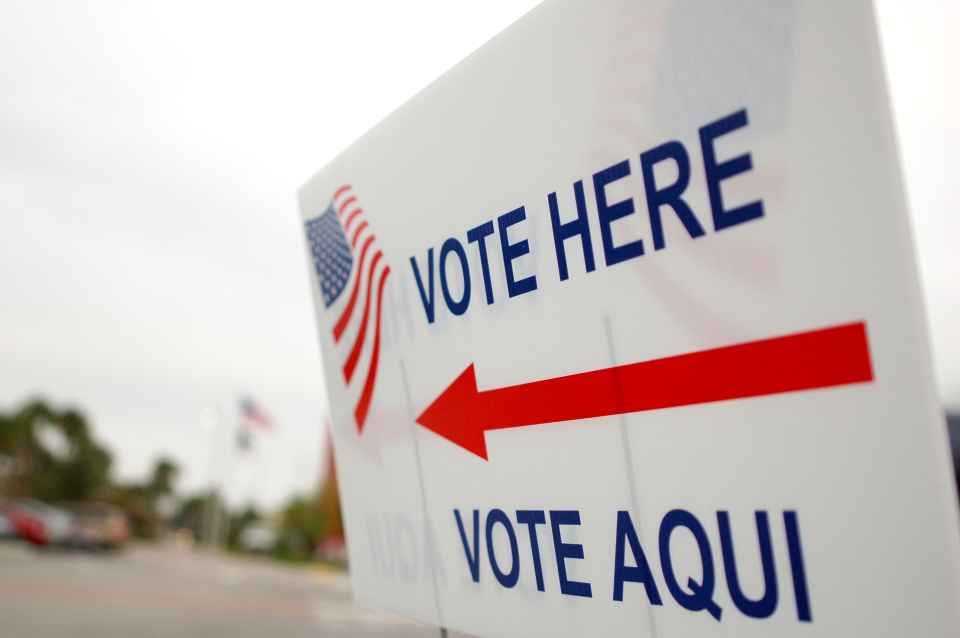
United Sovereign Americans, Inc. v. Nelson
What's at Stake
The ACLU and partner organizations have sought to intervene to represent the rights of voters and voting-rights organizations in a case seeking to unlawfully purge the Texas voter rolls and block certification of the results of the 2024 election.
Summary
In August 2024, United Sovereign Americans, Citizens Defending Freedom, and former political candidate Bernard Johnson, filed a lawsuit against Texas Attorney General Ken Paxton, Texas Secretary of State Jane Nelson, and U.S. Attorney General Merrick Garland, seeking mandamus relief challenging state election procedures related to voter rolls and Texas’s voting system after a purported analysis of 2022 voting data. In their suit, which they filed in the Northern District of Texas, Amarillo County, they allege to have identified voting, registration, and voter roll errors in statewide voter registration databases, and claim that these errors violate the National Voter Registration Act (NVRA), and state law. In their view, absent court intervention, the same errors will occur in 2024.
Petitioners broadly ask the court to order state and federal officials to take action to enforce the NVRA, correct the voter rolls, and block the certification of the state’s 2024 election results until they do so. In addition, in Texas, Petitioners request that the court order the state to submit voter registration requests to the Department of Homeland Security for citizenship verification whenever there exist any reliable indicators that an applicant or registered voter may not be a U.S. citizen.
Representing the Texas State Conference of the NAACP and the League of Women Voters of Texas, the ACLU, the ACLU of Texas, Lawyers Committee for Civil Rights Under the Law, and Winston & Strawn sought to intervene as defendants in the suit on October 9. Members of these groups would be likely wrapped up into any voter purge in Texas and would be surely disenfranchised should Texas decline to certify the 2024 election results and future election results. In addition to protecting the interests of their members, the organizations themselves would be harmed by removals of voters in the 90-day quiet period because they conduct voter registration as well as other voter engagement work, and if there were purges ordered during what is ordinarily a quiet period, it would divert their activities by needing to work to re-register voters who were removed from the rolls for this and future elections, subverting their other election-related work, particularly during the incredibly busy pre-election season.
Legal Documents
-
10/09/2024
Motion to Dismiss by Proposed Intervenor-Defendants Texas State Conference of the NAACP and League of Women Voters of Texas -
10/09/2024
Brief in Support of Motion to Intervene by Texas State Conference of the NAACP and League of Women Voters of Texas -
10/09/2024
Texas State Conference of the NAACP and League of Women Voters of Texas's Motion to Intervene -
10/08/2024
Brief in Support of Texas Defendants' Motion to Dismiss -
10/08/2024
Texas Defendants' Motion to Dismiss -
08/27/2024
Complaint
Date Filed: 10/09/2024
Court: District Court (N.D. Tex.)
Affiliate: Texas
Download DocumentDate Filed: 10/09/2024
Court: District Court (N.D. Tex.)
Affiliate: Texas
Download DocumentDate Filed: 10/09/2024
Court: District Court (N.D. Tex.)
Affiliate: Texas
Download DocumentDate Filed: 10/08/2024
Court: District Court (N.D. Tex.)
Affiliate: Texas
Download DocumentDate Filed: 10/08/2024
Court: District Court (N.D. Tex.)
Affiliate: Texas
Download DocumentDate Filed: 08/27/2024
Court: District Court (N.D. Tex.)
Affiliate: Texas
Download Document